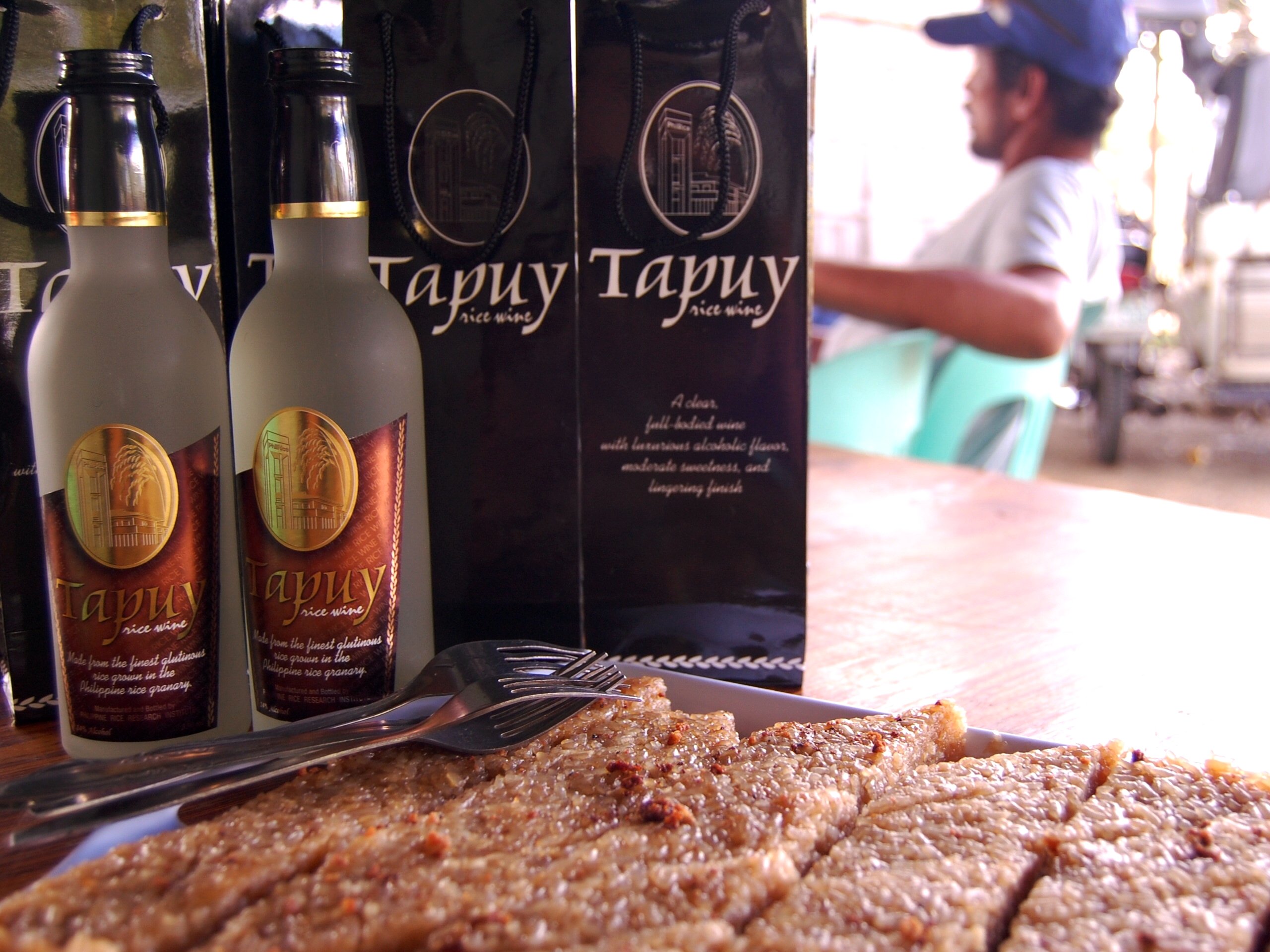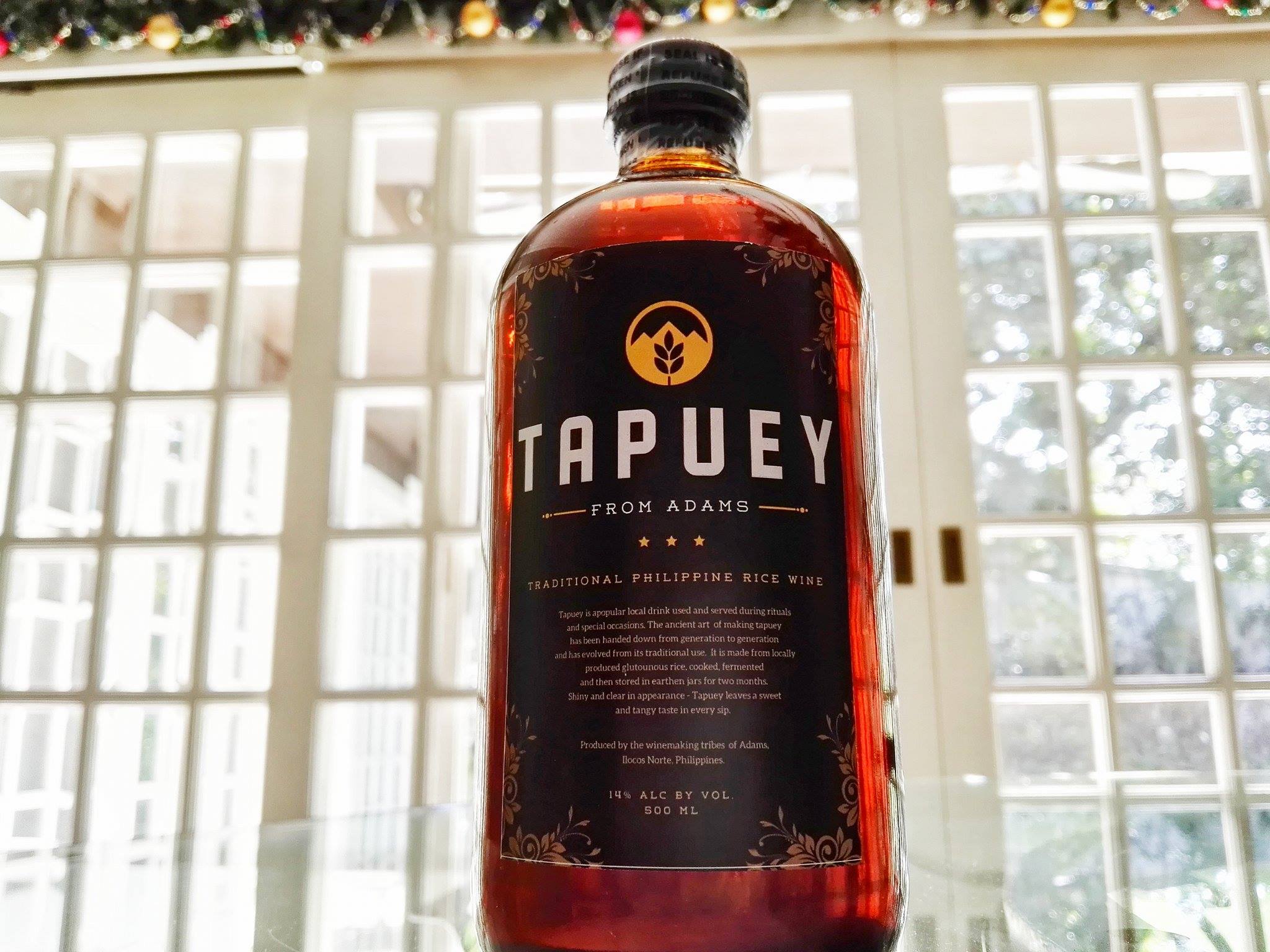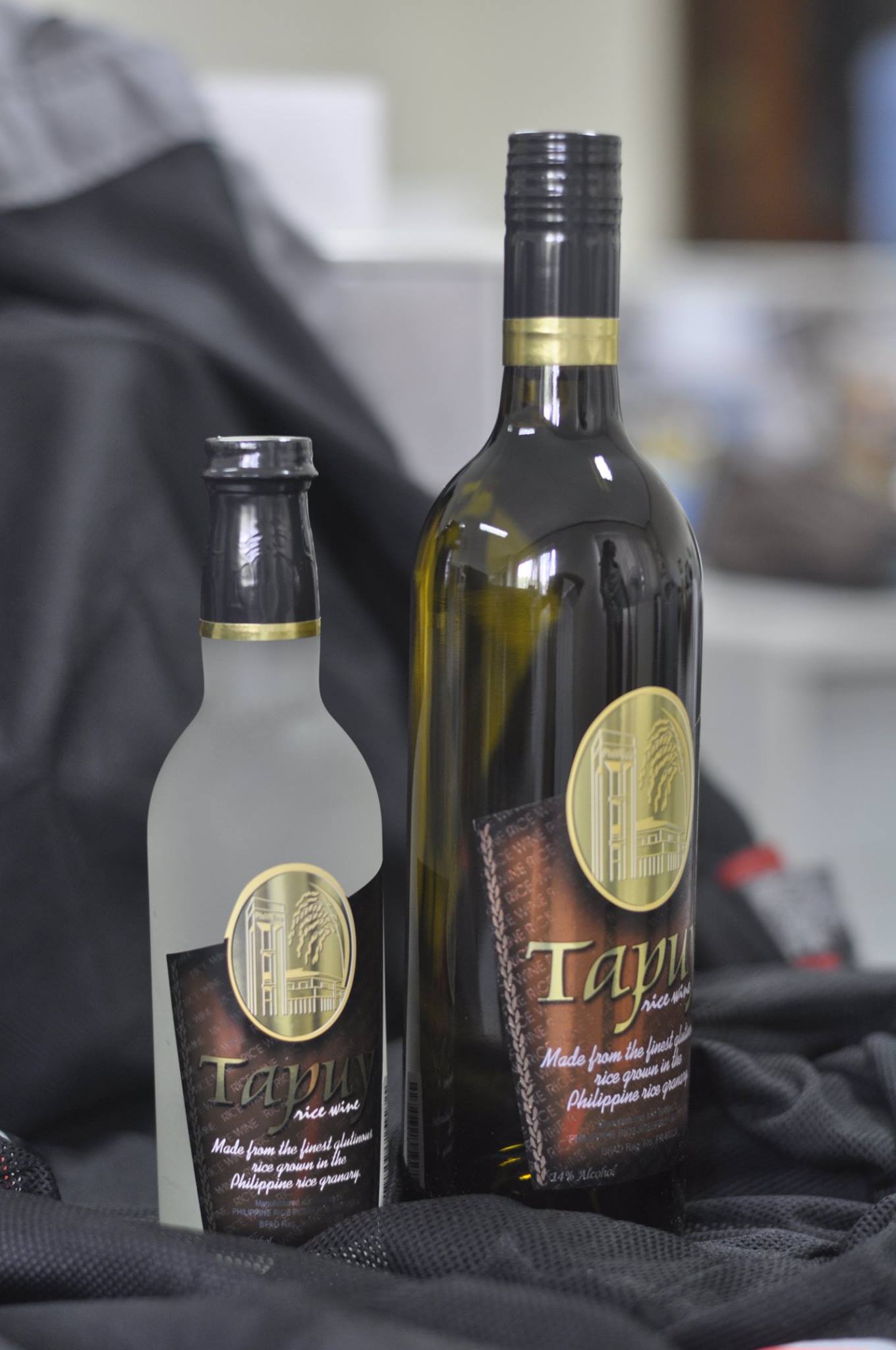Tapuy Rice wine
Tapuy, also spelled tapuey or tapey, is a rice wine produced in the Philippines. It is a traditional beverage originated from Banaue and the Mountain Province, where it is used for important occasions such as weddings, rice harvesting ceremonies, fiestas and cultural fairs. It is produced from either pure glutinous rice or a combination of glutinous and non-glutinous rice together with onuad roots, ginger extract, and a powdered starter culture locally known as bubod. Tapuy is an Ilocano name. The wine is more commonly called baya or bayah in Igorot languages.
The tapuy rice wine is considered as the ceremonial wine served during special occasions (such as weddings) and large celebrations like a bountiful harvest festival. Since the natives can produce tapuy rice wine inside their homes, the local wine is also imbibed by the locals on a daily basis.Tapuy is a Filipino rice wine originated in Batad (a place in the Banaue Rice Terraces), Ifugao, Philippines. This native wine from fermented rice is also produced in the Cordillera Province; particularly in Apayao, Benguet, Kalinga, and Mountain Province. Other names for tapuy in these parts are: tapey or bayah . The native brew is prepared locally and produced from fermented rice.
The Ifugao Binakle was so delicious, with its soft and chewy texture and unique flavor from the glutinous rice and banana leaves, that I couldn't stop eating it and ended up devouring the entire batch!

Edgar Louis de Gracia
Tourist
The characteristics of tapuy, as in many other rice wines, depend on the process and ingredients used by each manufacturer. However, in general, tapuy is a clear full-bodied wine with a strong alcoholic flavor, moderately sweet and often leaves a lingering taste. The alcohol content is 28 proof or about 14 percent. It has no sulfites (which are preservatives found in other wines) that sometimes cause adverse reactions like hang-over and allergies. Tapuy is also not diluted with water and has no sugar added.
The process of producing commercial tapuy starts with weighing and washing selected rice. Then, the rice is cooked, cooled and inoculated with a natural starter culture, locally known as bubod. After that, a process of natural pre-fermentation and natural fermentation follows. Once the fermentation is completed, the fresh wine can be harvested and pasteurized. After the pasteurization, the rice wine is aged, filtered and clarified before bottling. Finally, bottled rice wine is pasteurized once again before sealing.
Quick Information
- Country Philippines
- Location Ifugao, Cordillera Administrative Region, Luzon, Philippines
- Project URL https://www.wikiwand.com/en/Binakle
- Visit Website



